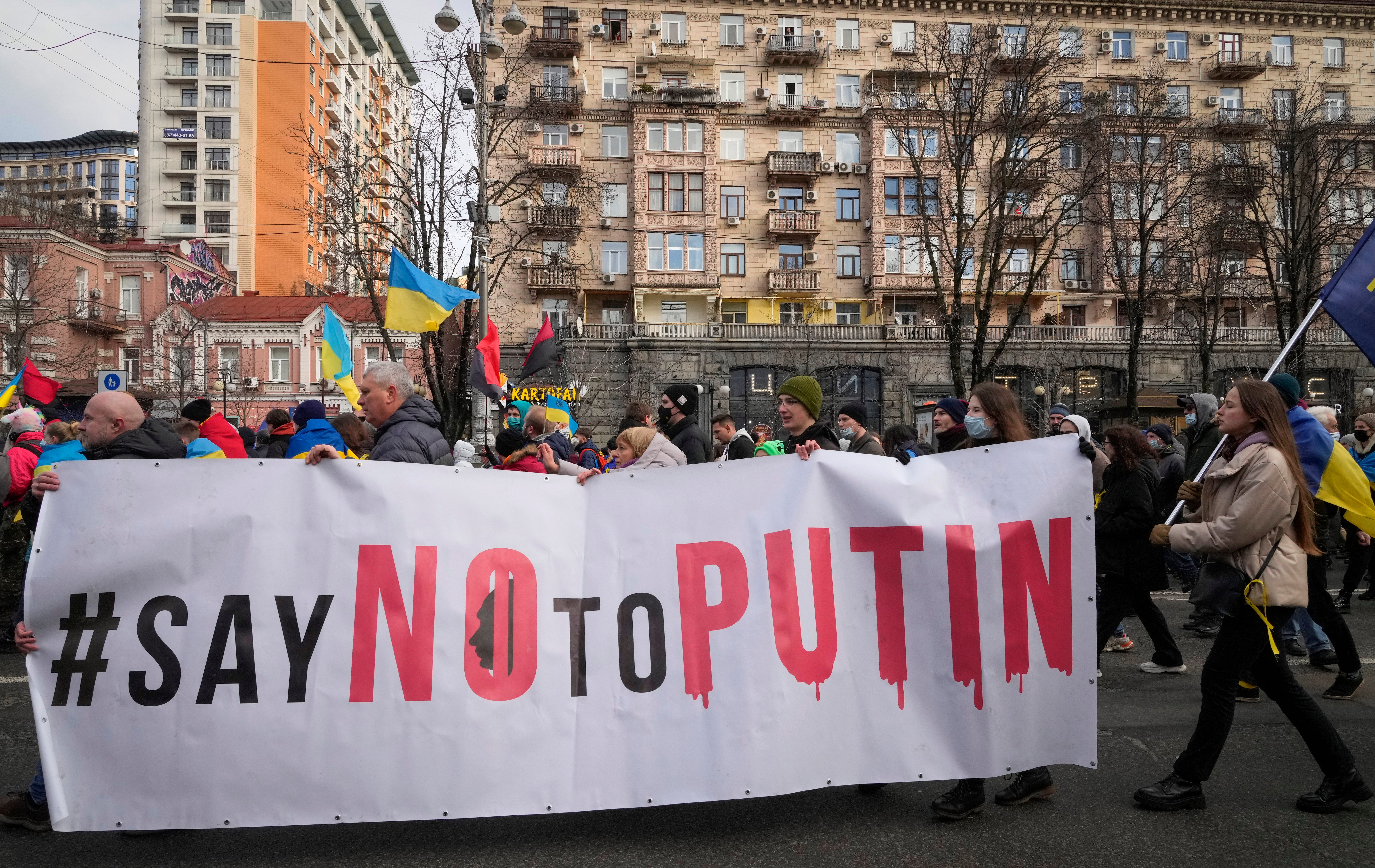If Russia does invade Ukraine, what are the consequences for the world economy?
Russia is disproportionately important as the world’s largest exporter of gas and the third largest producer of oil and oil products, writes Hamish McRae


We should hope against hope that Russia will not invade Ukraine, but we must be realistic that it may do so. If it does, there will be great human costs and massive political consequences. Others can comment better about these. Here, what can we sensibly say about what this might mean for the world economy?
Russia and Ukraine are quite small economies, despite the fact that Russia controls the largest landmass in the world and Ukraine the largest landmass (aside from Russia) in Europe. According to the World Bank, in 2020, Russia’s GDP was roughly $1,500bn. Ukraine’s GDP was one-tenth of that, at $150bn. Global GDP was $85,000bn, so together they generate about 2 per cent of the world’s output. Seen through that lens, the direct impact of whatever happens should barely register on the rest of the world.
But there are such complex links in the world economy that this simple, and apparently comforting, calculation does not hold. Russia is disproportionately important as the world’s largest exporter of gas and the third-largest producer of oil and oil products. Ukraine matters as a food producer, particularly of grains. It is the world’s fifth-largest exporter of wheat and of corn, and the sixth largest of barley.
It would be naive to suppose that if an invasion were to happen, it would not damage the exports of both countries, and it is sensible, therefore, to expect the price of oil and gas, and of grains, to rise. It would be surprising if the oil price does not hit $100 a barrel. If it does, that will affect the price at the pumps all over the world. But war would not only mean we would all pay more to fill up our cars. It would also increase food prices everywhere, including in emerging economies, hitting poorer people harder than richer ones.
Beyond these direct effects, there will be a series of indirect ones, including the impact of any sanctions the US might impose on Russia. As a general rule, such measures are not particularly effective. If, for example, the west stops buying Russian oil, that oil would go to China. Europe cannot stop buying Russian gas, for it is overwhelmingly dependent on it to keep warm in winter. The worry is the reverse: that Russia might cut off supplies.
There is talk of Russia being excluded from the global payments system, called Swift, whereby banks settle up with each other for cross-border trade and investment, but that would be a double-edged sword. How would Europe pay for that gas? And were gas payments excluded, that would be a great excuse for Russia to turn off the taps. As for shutting Russia out of capital markets more generally, the harsh fact is that Russia does not need to borrow. Its government, unlike that of almost every other country in the world, is running a surplus.
To keep up to speed with all the latest opinions and comment, sign up to our free weekly Voices Dispatches newsletter by clicking here
There is a further concern: the uncertainty that a conflict might generate would have a more general impact on economic confidence, particularly in Europe. Disruption always carries costs, but this would come at a particularly bad time. This is partly because inflation is at or close to 30-year highs in most of the developed world, including in the UK and Germany, and a 40-year high in the US. This would add to it. But it is also because the cost of borrowing is already increasing in response to rising inflation, and war would almost certainly push borrowing costs up faster.
There is a final twist. As always when there is geopolitical upheaval, some of the concerns are already taken into account by the financial markets. It is impossible to put a price on it, but I suspect some of the increases that have already come through in the oil and gas markets are the result of fears of an invasion. However, there may be some weaknesses in the world financial system that have gone unnoticed even by the clever professionals, and will only show up when the stresses mount. Those stresses will, I fear, increase in the days ahead.



Join our commenting forum
Join thought-provoking conversations, follow other Independent readers and see their replies
Comments